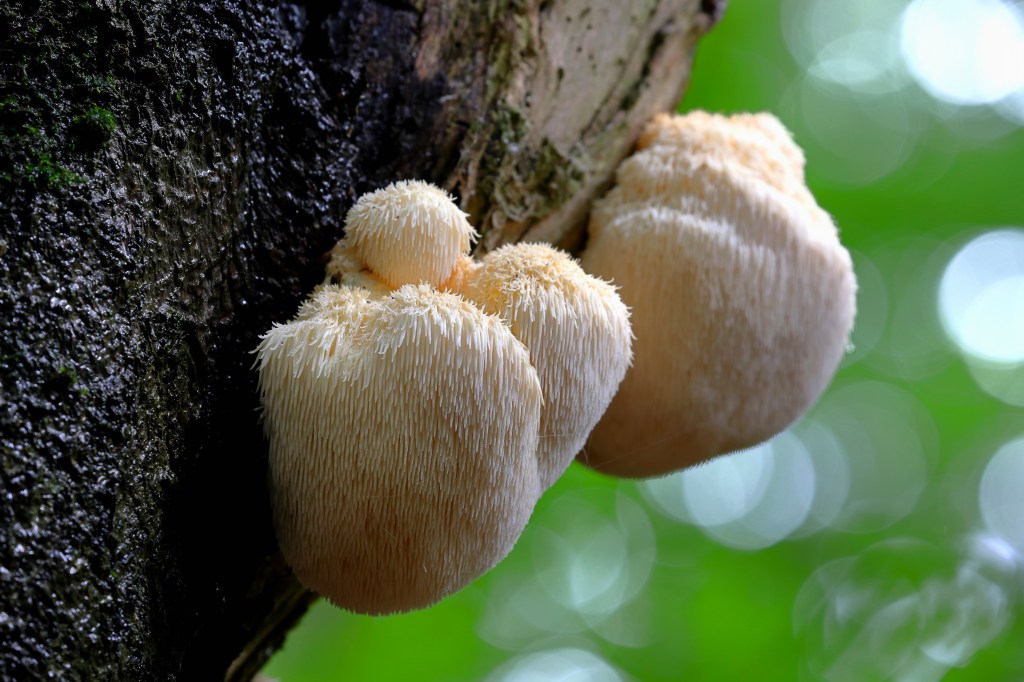“I Tried a Lion’s Mane Mushroom Supplement to Cure My Neuropathy—And It Worked!”
New research supports the use of this fungi to help reduce anxiety during menopause and nerve pain

Another day of this? Kathryn Decker thought, frustrated at the strange sensation in her toes, lower legs and hands. The tingling had started in her feet months prior and slowly intensified, leaving her soles feeling “thick” and devoid of sensation, which threw off her balance.
Kathryn was soon diagnosed with neuropathy, a nerve issue that causes pain, numbness, tingling, swelling and weakness, starting in the hands and feet. It’s often connected to diabetes, but since Kathryn was not a diabetic, her doctors struggled to find the cause and a solution. “It will likely not reverse and will eventually progress” her doctor told her solemnly.
“So, there’s nothing I can do?” Kathryn asked, determination overtaking her. I can’t live like this, I can’t just accept this. I am going to find a way to fix this—once and for all!
One day, while she and her husband were watching a Netflix documentary called Fantastic Fungi, Kathryn’s husband keyed in on a discussion about the healing benefits of lion’s mane mushrooms. “Wow, this sounds like it can help me,” she said, and hope sparked in her heart.
What is lion’s mane mushroom?
Lion’s mane mushroom, hericium erinaceus, is an edible mushroom belonging to the tooth fungus group. It’s found in North America, Europe and Asia, often growing on trees or bark. Lion’s mane mushrooms can be identified by their long dangling spines, which often grow in a single clump resembling a large, shaggy lion’s mane.

What are the health benefits of lion’s mane mushroom?
Known for being curative to the nervous system, lion’s mane mushroom has been shown to protect against dementia, reduce anxiety and, most intriguingly, repair nerve damage. Researching further, Kathryn and her husband discovered that this mushroom contains hericenones and erinacines, two compounds that stimulate a protein known as nerve growth factor (NGF), which is essential for brain health and neuron conductivity.
Lion’s mane mushroom’s antioxidant properties also aid in circulation issues — specifically neuropathy — so Kathryn decided that it was worth it to try, and ordered her own mushroom growing kit. “They’re really tasty when sautéed,” she observed after her first round of mushrooms was ready.
Is is safe to take a lion’s mane mushroom supplement?
Once Kathryn realized it takes about two weeks to grow the mushrooms, she decided to try the fungi as a supplement. After a little more research and talking with her doctor, she bought Double Wood Lion’s Mane Mushroom capsules and began taking 1,000 mg. with breakfast each morning. Lion’s main mushroom supplements come in various forms like, a powder, an extract tincture or in a tea.
A week later, Kathryn was shocked to already feel a difference in her feet. “I can feel the soles of my feet again—and some toes!” she enthused to her husband.
Today, five months after she began taking lion’s mane, Kathryn has feeling back in her feet and hands, and the abnormal sensations she was experiencing are gone. “I’m so happy!” the 52-year-old beams. She even found lion’s mane in a tea form—a delicious alternative. “It’s amazing, I have my life back and I don’t have to worry about the future!”
More Study-Backed Benefits of Lion’s Main Mushroom Supplement
√ Tames anxiety: Researchers in Japan have revealed that taking 300 mg to 500 mg of lion’s mane daily can lower brain fog, anxiety and irritability associated with menopause in just four weeks. They credit compounds in the medicinal mushroom with stimulating the body’s production of nerve growth factor (NGF) that repairs and energizes weary brain cells.
√ Supercharges memory: A recent study in Frontiers in Aging Neuroscience found that taking three 350 mg capsules of lion’s man daily triggered significant improvements in brain health in people with mild Alzheimer’s disease. Nutritional expert Elisa Lottor, Ph.D., says says compounds in the mushroom, including eracines, stimulate growth and regrowth of the myelin sheath, the white matter that surround nerves responsible for processing information.
√ Heals the GI tract: H. pylori is a common bacteria that triggers intestinal infections that lead to fatigue, bloat, stomach pain and more. But animal research at the University of Georgia has found that lion’s mane extract prohibits the bacteria from attaching to intestinal cells, stopping its growth in mice and helping to heal the gut from damage.
Editor’s note: Lion’s mane can affect some medications, especially blood thinners, so always check with your doctor before starting a new supplement
This content is not a substitute for professional medical advice or diagnosis. Always consult your physician before pursuing any treatment plan.
A version of this article originally appeared in our print magazine, Woman’s World.













